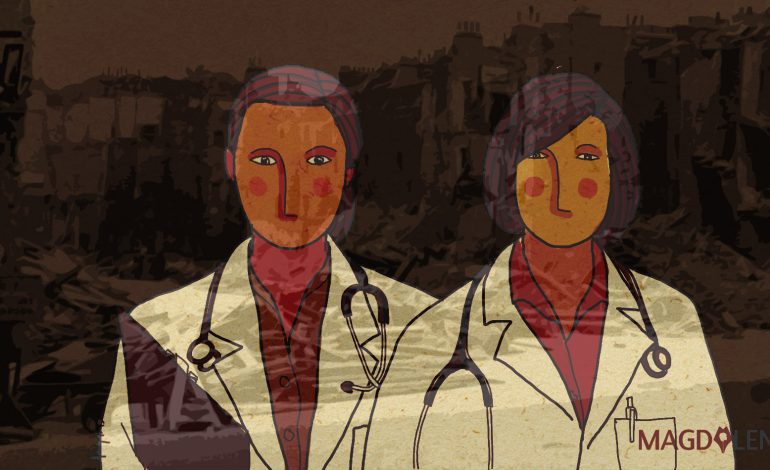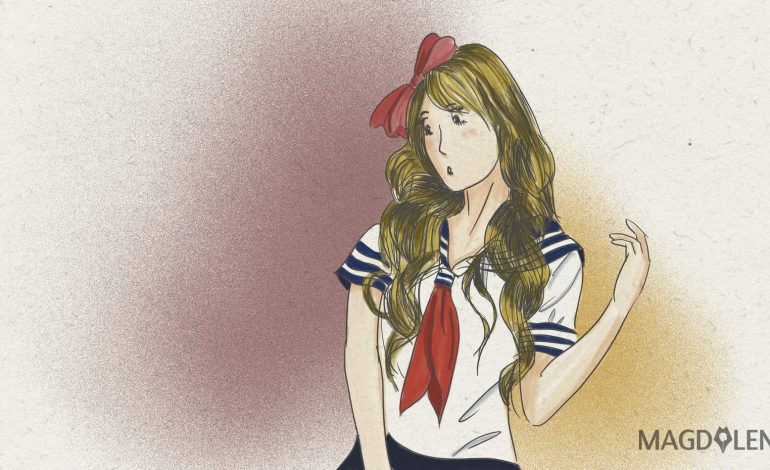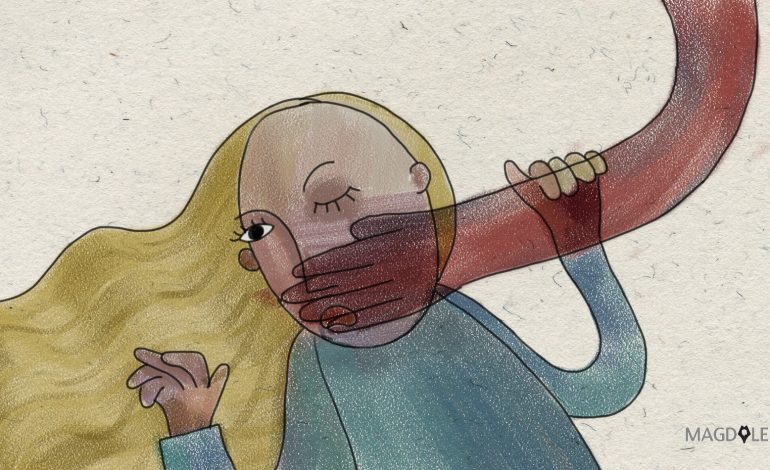Service Without Borders: The Women of Troubled Areas

The 2004 tsunami that hit Aceh and killed a quarter of a million of people was a milestone for Indonesia and many of its people, not just the Acehnese. It also set the career stage for many, including Sartini Saman and Pratiwi Sutowo.
After seeing the magnitude of the natural disaster, both women decided to work in the humanitarian field, joining Médecins Sans Frontières (MSF) or Doctors Without Borders as field workers. They have since traveled to troubled areas across the globe, from typhoon-hit Philippines to conflict ridden countries like South Sudan, Sierra Leone and Ukraine.
A general practitioner, 36 years old Sartini said she had always wanted to do social work ever since she studied at Atmajaya University’s medical school in Jakarta.
“My family constantly reminded me not to become a money-oriented doctor. But as it turns out doing social works does not necessarily mean you have zero income either,” said the Chinese Indonesian in a recent interview in Jakarta during her break from an assignment.
Upon graduation, she applied to MSF in 2005 and was immediately sent to Aceh for 18 months. It was followed by an eight-month posting in Asmat, Papua, where she found a heart-breaking condition due to poor infrastructure, harsh natural terrain and low level of health education.
“It was a swamp area in the middle of nowhere. There was a community health center, but it had to be reached by boat, and it was run on an irregular schedule. Malaria was rampant, with women and children being the most vulnerable,” she said.
After the Papua assignment, Sartini wanted something different, so she worked at a company in the capital to focus more on health administration and management. But the humanitarian calling came back and she returned to MSF after a year. The managerial experience turned out to be useful, as she focused more on coordination work aside from the medical job.
Her first assignment was to cyclone-stricken Sundarban in Bangladesh, stationed in a commercial ship turned health clinic. Afterward, she was sent to the border area between rebel-controlled Chhattisgarh and Andrapradesh in India, managing a mobile clinic set under a mango tree.
“Tuberculosis was prevalent there, and since it was a conflict area, we often worried that the patients did not come back. Whereas TB requires non-stop medicine for six months,” she said.
She was sent to a few places afterwards, but the toughest and the most memorable place for her so far, is South Sudan, a landlocked country in northeastern Africa that gained its independence from Sudan in 2011.

Sartini Saman at work. (Photos courtesy of MSF)
As a new country, infrastructure was sparse. There was no electricity, and the roads were still made of dirt, except the ones from the airport to the presidential house.
Sartini coordinated medical response in refugee camps in South Sudan. In some areas they worked from scratch, clearing land to make a makeshift clinic and often encountering snakes and scorpions in the process. Wheelbarrows were used as ambulance and power generator was reserved for surgery.
The situation was especially grim in Leer, a small town in the north that had became a ghost town after the civil war in the 1980s through 1990s destroyed most of the buildings. MSF ran a large hospital in Leer, although it was eventually ransacked and destroyed in 2014, after violence forced the evacuation of its crew.
“It was in Leer that I found a person who was so badly dehydrated that he died right at the hospital door. Two women from his family carried him in a wheelbarrow and just dropped him at the hospital. I don’t think it’s cruel of them to leave him, they were just being realistic,” said Sartini, adding that the hospital was also responsible for patients’ funeral.
Amid the gloomy and sometimes violent condition, Sartini was ecstatic to suddenly meet fellow Indonesian in the middle of South Sudan. It was Pratiwi, 42, who was assigned to train administrative works for locals.
“I was so happy to meet her and she was too. We immediately cooked Indonesian-style noodle soup,” Sartini laughed.
Both of them worked in the same place for a few months before Pratiwi moved to some place else.
Working in tough areas has also sharpened my sensitivity and sense of priority. There are so much more important things in life than mundane things that people like to complain about.
Unlike Sartini, Pratiwi did not have a medical background. She had been working as administrative staff in the oil and gas service industry. The Aceh tsunami that opened many jobs in non-profit sector lured her. She first worked in the field in Nias, North Sumatra, before applying to MSF in 2011.
Her first assignment was to Musina in South Africa that borders with Zimbabwe. She was working for two years in an HIV/AIDS project for migrant workers. Pratiwi was then posted in South Sudan, teaching locals the basic skills of office work, from time management to work ethos and ethics.
“It was very challenging because, like, two third of South Sudanese were still illiterate,” she said.
She also has worked in the early days of Ebola outbreak in Sierra Leone, describing it as “the most stressful. We had staff infected by Ebola. Many people asked to go home early.”
She recently finished an assignment in Donetsk, a conflict area in eastern Ukraine that has been seized by pro-Russian rebel. It was not rare to hear gunshots and exchange of fires, she said, that when the situation was quiet it almost became strange.
“Fortunately, the soldiers were good -looking,” Pratiwi said, laughing.
Coping with stress
Living in godforsaken places rife with violence and diseases certainly can become stressful. It also made Sartini and Pratiwi longed for the comfort back home, especially food.
“We train locals to cook Indonesian food. It has also opened up their horizon. The cooks said, ‘Oh, I didn’t know that chicken can be cooked that way’,” said Sartini.
She said it was normal to be frightened and stressed out, but she did not indulge in it because she was responsible for many people.
“I’ve become more solution-oriented, because otherwise people would die. Working in tough areas has also sharpened my sensitivity and sense of priority. There are so much more important things in life than mundane things that people like to complain about,” said Sartini.
She said she cringed every time she goes back home and hears people complain about love life or politics. Part of her feels like dying too every time she hears people wasting water in the bathroom or not finishing their drinks (as in mineral water, not alcohol).
“At first I became impatient with those people but later I understand, not everyone is exposed to what I’ve experienced,” she said.
Both denied that they have become adrenaline junkie, saying that they had seen such characteristic among colleagues and felt that they had not turned into ones. Although Sartini did not skip a beat when she was asked which place she wanted to go next: war-torn Syria.
The strong sense of purpose to serve people makes them yearn to come back to troubled areas, although their boyfriends kept urging them to stay in the country and settle down.
“I feel honored to work in such places, having access to those areas and serve people…meeting local staff with such high passion, spirit and attentiveness,” said Sartini.
For Pratiwi, “educating people is the best reward. And as Indonesians, we are praised because we are patient in doing so.”
 Pratiwi Sutowo at work. (Photos courtesy of MSF)
Pratiwi Sutowo at work. (Photos courtesy of MSF)
Read Hera’s profile piece of an impactful socialpreneur in Bandung and follow @heradiani on Twitter.






















